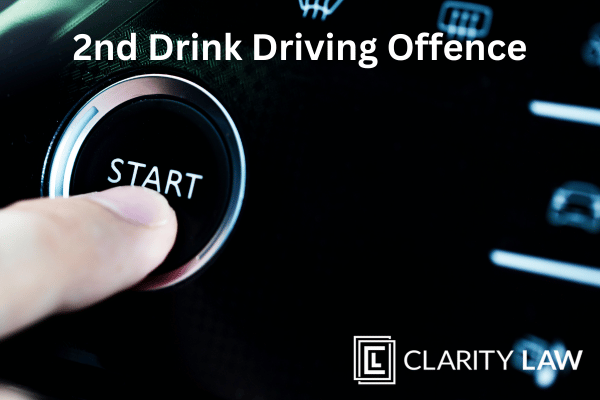
It is common for people charged with a drink driving offence to come before a Queensland court with a history of drink or drug driving offences. Sometimes, these offences are dated, having occurred over 5+ years ago.
A history of drink or drug driving becomes much more relevant to a defendant, if their previous offence was within the last 5 years from the date of the offence. The reason for this is two fold:
-
it makes the defendant ineligible for a work licence;
-
it exposes a defendant to a greater minimum and maximum penalty than they otherwise would have faced.
This article will focus on the second of the above, being the increase in penalty that a defendant is exposed to if this is their second or more drink driving charge.
Why is a person exposed to a higher penalty?
The Police have the power, which is often exercised to serve a “Notice of Intention to allege previous conviction” or often simply known as a Notice to Allege. This notice is served pursuant to section 47 of the Justices Act 1886 and formally puts the previous convictions before the court.
This is significant in the event of drink and drug driving offences as pursuant to section 86 of the Transport Operations (Road-Use Management) Act 1994. This section deals with the mandatory minimum disqualifications for drink and drug driving offences, for example:
-
Drink Driving over the general alcohol limit but not over the middle alcohol limit, the mandatory minimum is a disqualification of 1 month to a maximum of 9 months;
-
Drive with relevant drug in blood or saliva, the mandatory minimum is a disqualification of 1 month to a maximum of 9 months; and
-
Drive over the middle alcohol limit but not over the hight alcohol limit, the mandatory minimum is a disqualification of 3 months to a maximum of 12 months.
However, when a notice of intention to allege is tendered, the court must start the disqualification at a higher mandatory minimum, for example:
-
Drive over the general alcohol limit, with a previous like offence – the mandatory minimum becomes 3 months and the maximum 18 months;
-
Drive with relevant drug in blood or saliva, with a pervious like offence – the mandatory minimum becomes 3 months and the maximum 18 months;
-
Drive over the middle alcohol limit, with a pervious like offence – the mandatory minimum becomes 6 months; and
-
Drive Under the Influence of Liquor or Drug – the mandatory minimum becomes 9 months to a maximum of absolute disqualification.
The court however, will take all alleged previous convictions into account when determining whether or not to impose lengthier periods of disqualification, or indeed whether or not harsher penalties are appropriate to impose, such as community based orders such as Community Service or Probation to considering periods of imprisonment if there is a lengthy history of drink and drug driving offences.
What can I do to reduce my penalty and disqualification period for a second drink driving offence?
The best thing is obviously to engage an experienced traffic lawyer to act for you. A lawyer knows what the court needs to hear to get the lowest penalty possible for a 2nd drink driving charge.
Other things you can look to do are:
-
obtaining character references
-
where appropriate seek medical help if needed
-
completing a traffic offender program
-
completing a letter of apology
-
get a good traffic lawyer
I have heard that if I have three offences in 5 years I have to go to prison?
If this is your third high range drink driving charge in 3 years then the court must impose a term of imprisonment. It does not mean you will potentially serve time in prison as the court could potentially wholly suspended any sentence or give immediate release on parole if proper legal arguments are made.
If an accident occurred and someone was hurt or you have previous traffic or criminal history then the courts might be looking at whether a prison sentence might form part of the penalty
Conclusion
Drink and Drug driving offences are complex areas of law once a history of offences and multiple like offences occurring in a short period of time. Whether that is what penalties are going to be increased, whether the court can consider periods of imprisonment, or even if disqualifications are going to be served concurrently or cumulatively. Engaging an experienced traffic lawyer will allow you to get the best outcome possible in the circumstance where this is your second or more drink driving offence. This article is only the touching off point for a sometimes difficult to interpret area of traffic law, simply reading the relevant sections of the acts, without a background in criminal and traffic law creates unease and uncertainty for clients. This article is aimed to clarifying some of these concepts.
Should I get a drink driving lawyer to represent me for a second drink driving offence?
Some people of course decide just to go to court and throw themselves on the mercy of the court and hope everything turns out fine.
The difficulty with this is the court can be harsh, the magistrate treats drink driving charges seriously. Unless you know what to say and what not to say to the magistrate then you won’t get the best outcome. Even a month or two extra disqualification is going to cost a lot in terms of lost work opportunities, extra transport costs and interference in your personal life.
Traffic Lawyers aren’t that expensive and you get to have an expert on your side taking care of everything at court and looking out for your rights and best interests.
You can see our fixed prices by clicking here
If you want to engage us or just need further information or advice then you can either;
-
Use our contact form and we will contact you by email or phone at a time that suits you
-
Call us on 1300 952 255seven days a week, 7am to 7pm
-
Click hereto select a time for us to call you back
-
Email This email address is being protected from spambots. You need JavaScript enabled to view it.
-
Send us a message on Facebook Messenger
-
Click the help button to the right and leave us a message






